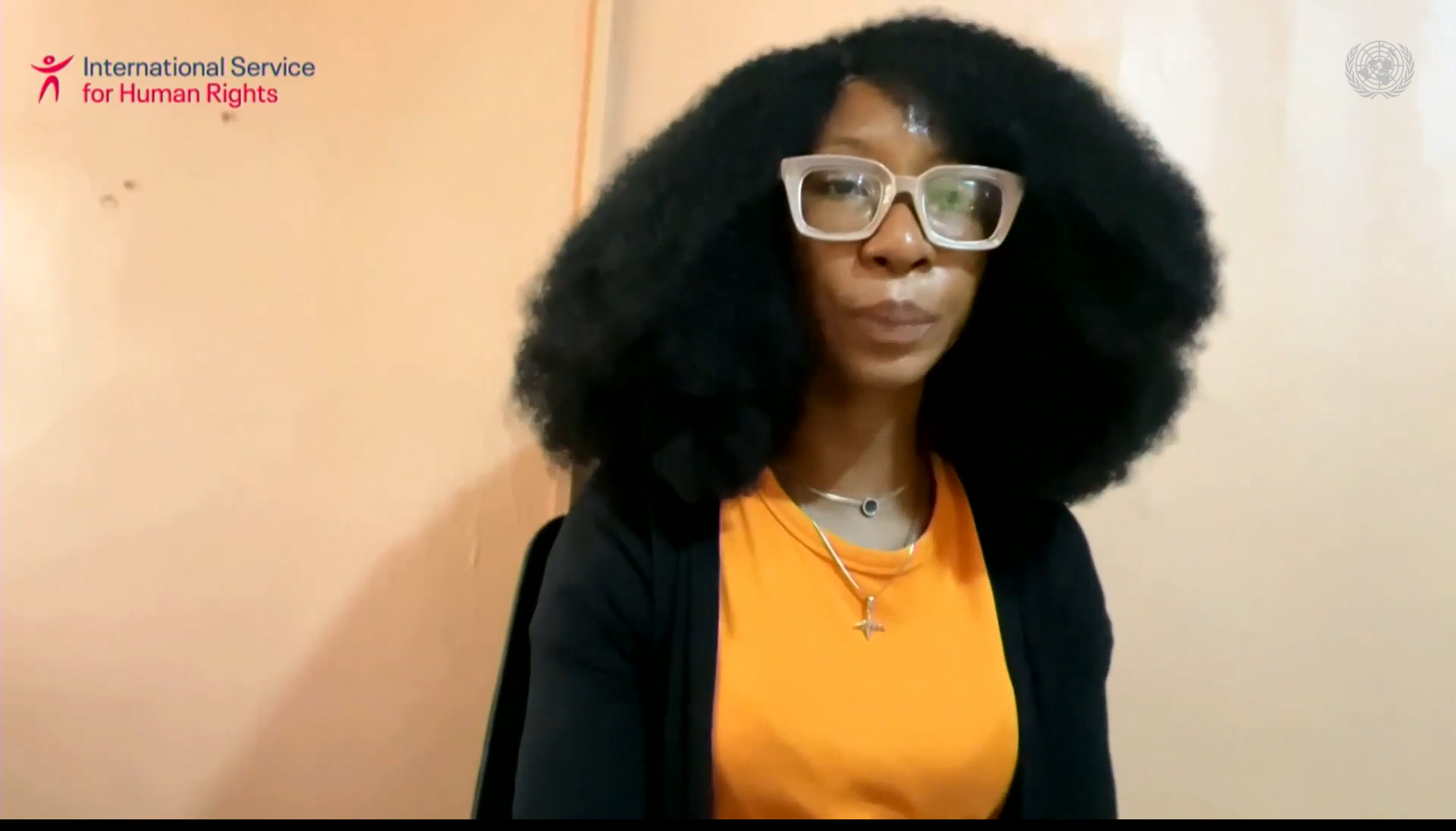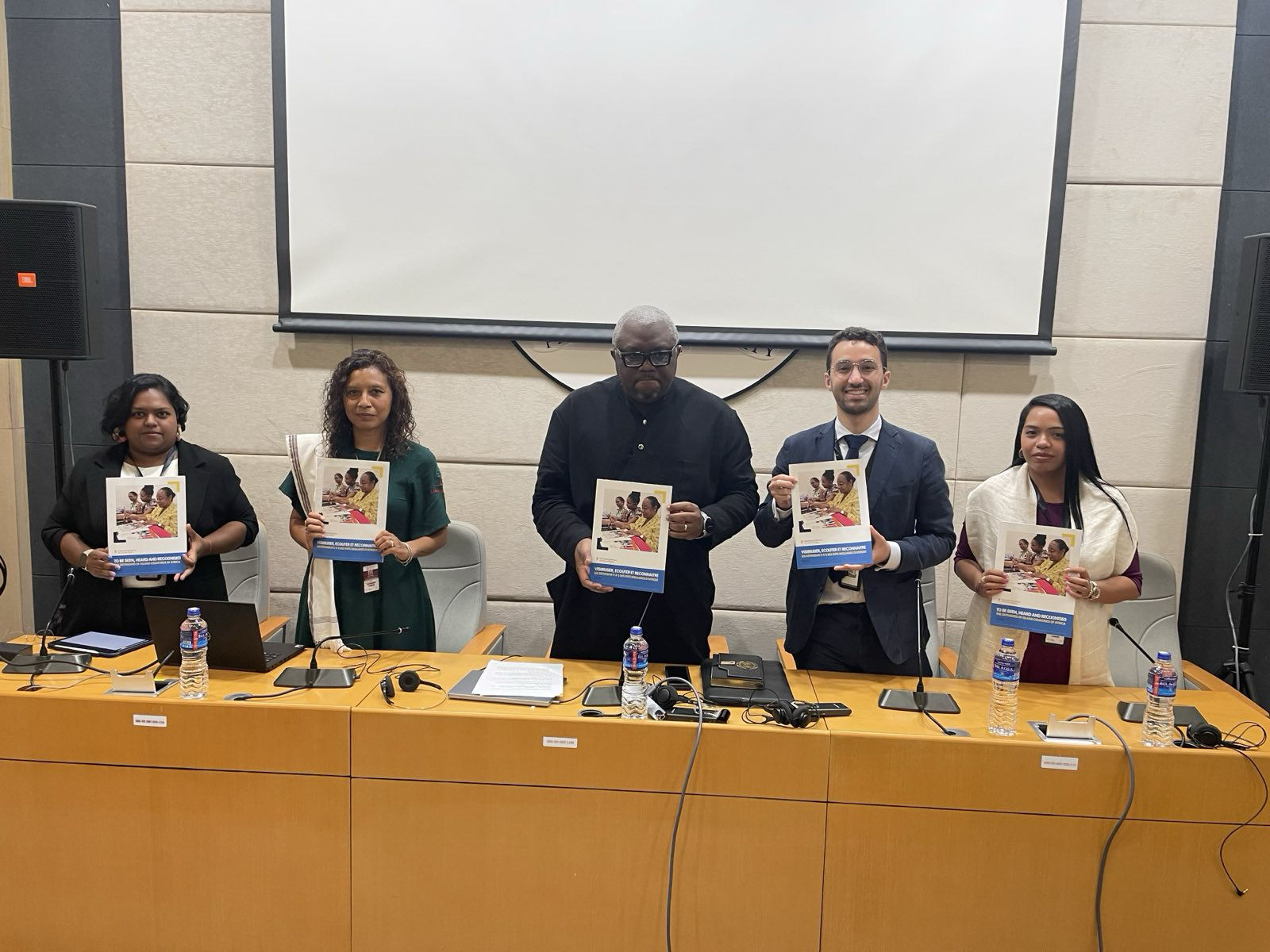
Egypt: Reform unjust vice laws, guarantee open civic space
During Egypt's UPR adoption at HRC59, Nora Noralla delivered a joint statement on behalf of ISHR, Cairo 52 and Middle East Democracy Center. Watch and read the full statement below.
ISHR

As the Human Rights Council discussed the Universal Periodic Review (UPR) report for Nigeria, ISHR and Partnership for Justice urged authorities to ensure a safe and enabling environment for human rights defenders.
The adoption of the report of the review of the 4th UPR cycle for Nigeria saw its representatives share explanations as to why it only noted some recommendations of the current cycle.
Indeed, Nigeria accepted 279 recommendations, including those on the protection of freedoms of peaceful assembly, expression and opinion, and on ensuring a safe and enabling environment for defenders, journalists and civil society.
These recommendations call on the Nigerian government to expedite the process of reviewing legislation undermining the enjoyment of these rights, as well as amending the Nigerian Press Council Act of 1992, which restricts journalists’ freedom of expression.
During the review, Nigeria stated that the country is committed to upholding human rights that are aligned to societal norms, national values and domestic laws. In response to recommendations on same-sex relationships, the Nigerian delegation argued that Nigeria’s Marriage Act defines marriage as a relationship between a man and a woman, while Christianity and Islam, the main religions in the country, also adhere to this definition, and that, therefore, they do not consider that alleged discrimination applies or exists in the country.
Other Member States and civil society organisations raised concerns on issues such as a hostile working environment for human rights defenders and journalists.
In a joint statement, ISHR and Nigerian NGO Partnership for Justice said that, though the recommendations ensure protection of human rights defenders and journalists, law enforcement officers and laws are still used to undermine the work of human rights defenders.
Therefore, we called on the Nigerian government to:

During Egypt's UPR adoption at HRC59, Nora Noralla delivered a joint statement on behalf of ISHR, Cairo 52 and Middle East Democracy Center. Watch and read the full statement below.

The 59th session of the UN Human Rights Council (16 June to 9 July 2025) will consider issues including civil society space, climate change, sexual orientation and gender identity, violence and discrimination against women and girls, poverty, peaceful assembly and association, and freedom of expression, among others. It will also present an opportunity to address grave human rights situations including in Afghanistan, Belarus, China, Eritrea, Israel and oPt, Sudan, Syria and Venezuela, among many others. Here’s an overview of some of the key issues on the agenda.

On 4 May 2025, on the sidelines of the 83rd Ordinary Session of the African Commission on Human and Peoples’ Rights (ACHPR) in Banjul, ISHR officially launched its new report on the situation of human rights defenders in the African island states: Cape Verde, Comoros, Madagascar, Mauritius, São Tomé and Príncipe, and Seychelles.